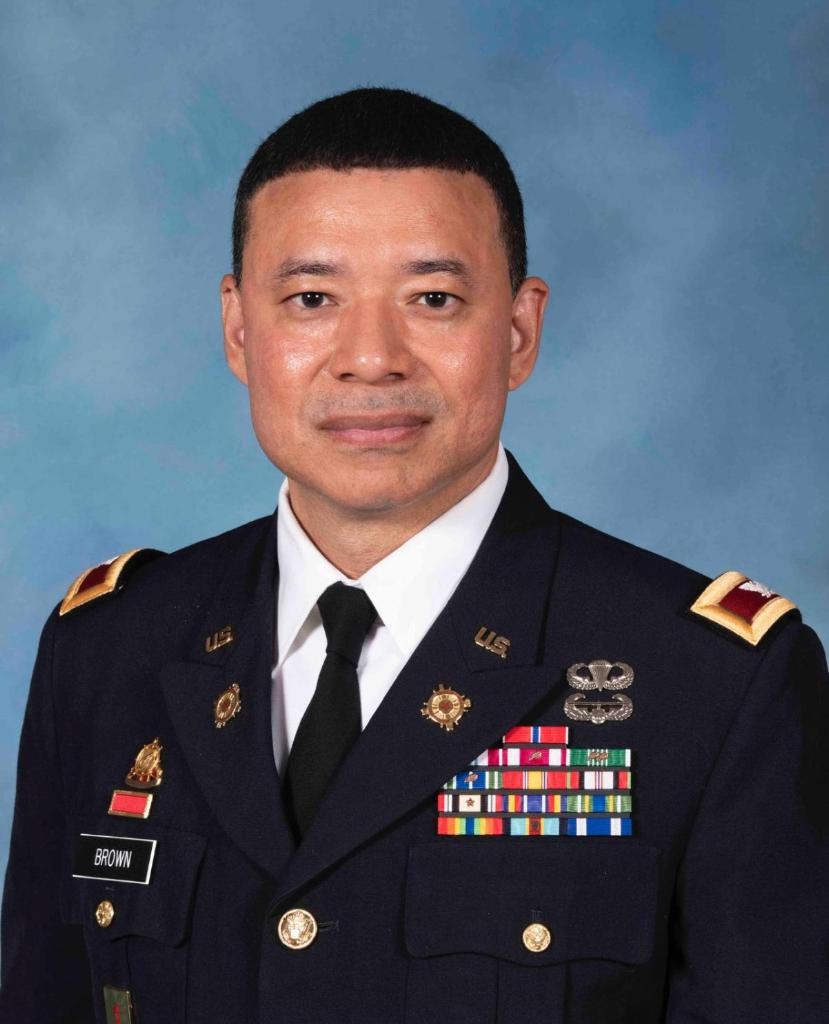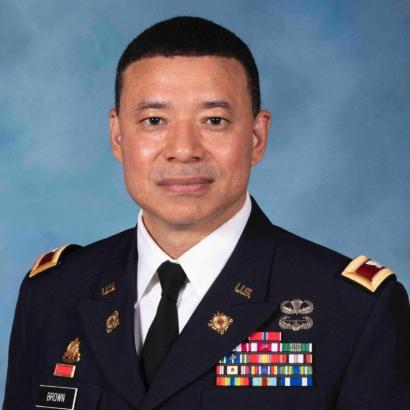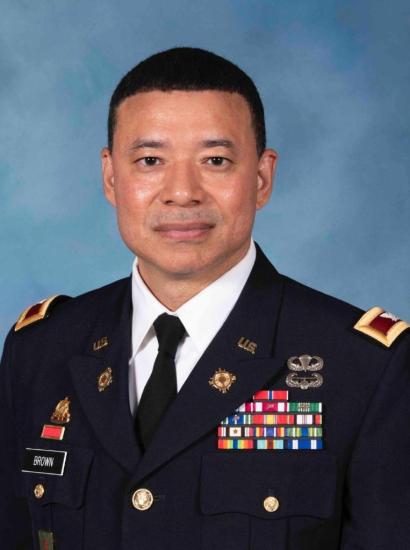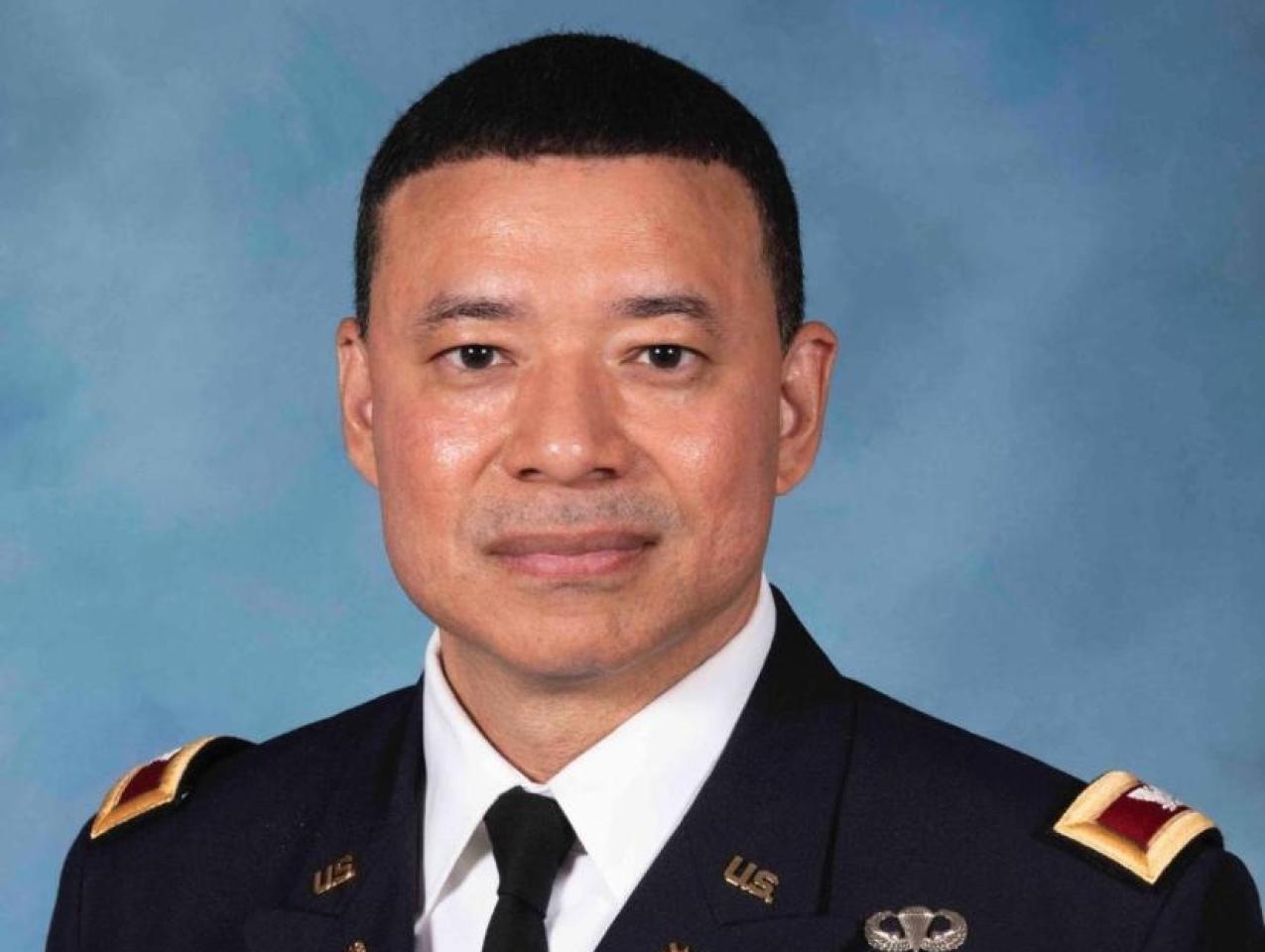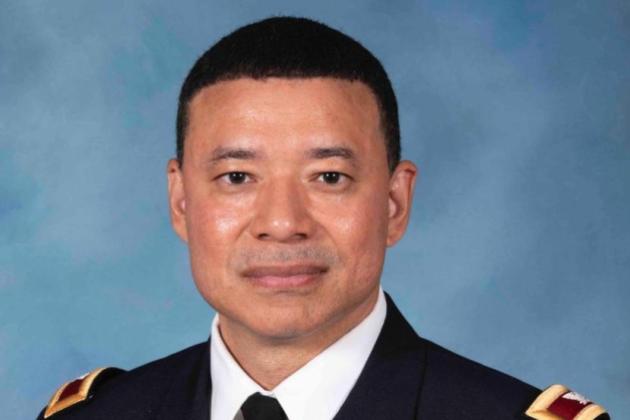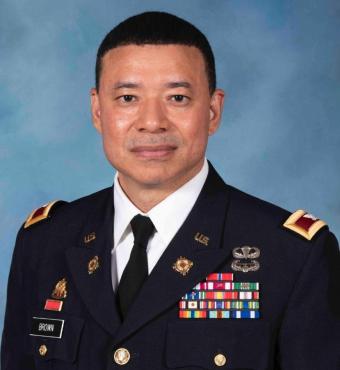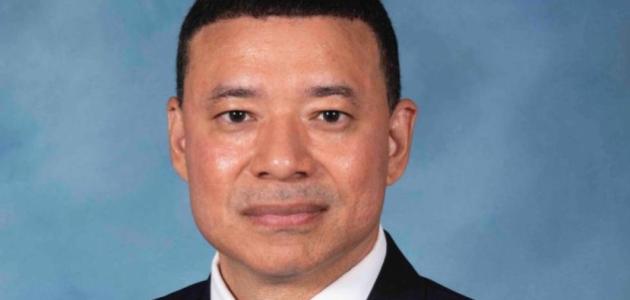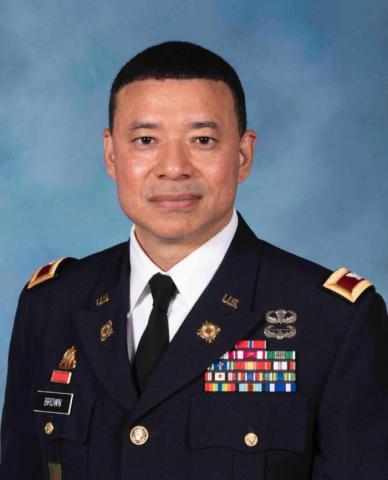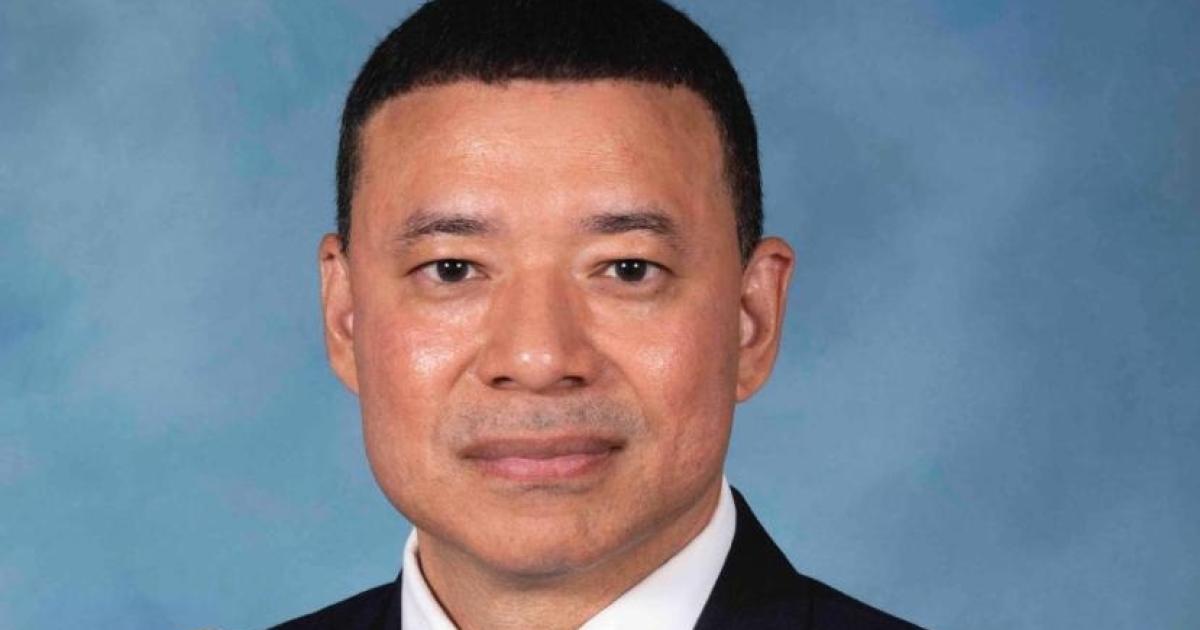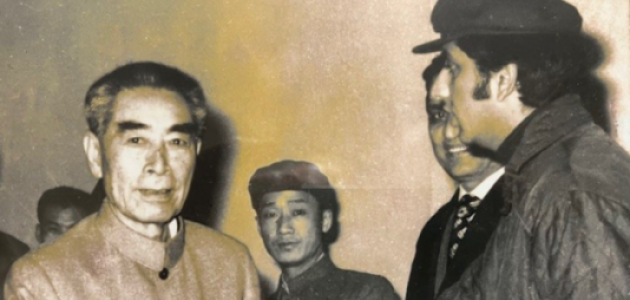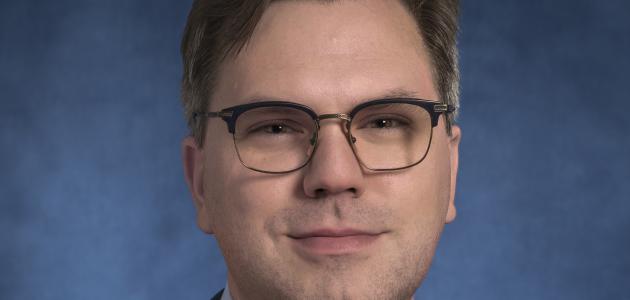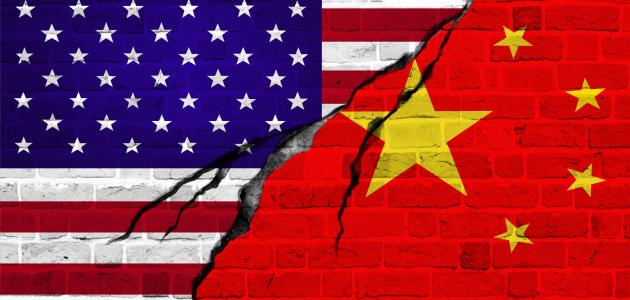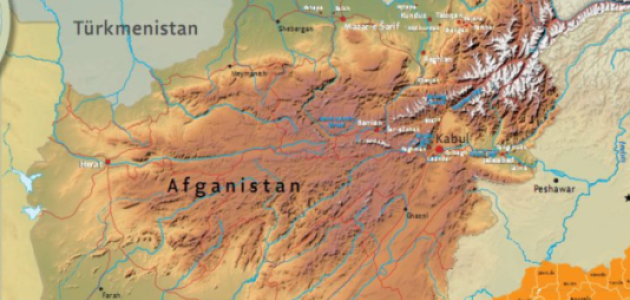Colonel Henry Brown, representing the US Army, is a National Security Affairs Fellow for the academic year 2022–23 at the Hoover Institution.
In this interview, Brown discusses his more-than-two-decade career in the US Army.
Brown’s incredible journey as an army logistician has taken him throughout Europe, the Middle East, and Asia and multiple times to Iraq and Afghanistan.
Brown has served in a variety of staff and leadership positions over the course of his career, which provided him with an opportunity for lifelong growth and education. Taking on new positions is a humbling experience and presents opportunities to improve on the lessons learned from the previous assignments. It is also, most importantly, a chance to build relationships and learn from servicemembers and Department of Defense (DoD) civilians who have a common bond and a goal of serving a greater purpose.
During his time at the Hoover Institution, Brown is conducting research on the reduction of South Korean military forces and assessing their efforts to modernize to mitigate the risk of having a smaller force. Additionally, he is examining the demographic challenges contributing to that nation’s decreasing population. Furthermore, he is studying the impact of the US military presence in the Republic of Korea and the Indo-Pacific region.
Why did you decide to join the US Army?
Henry C. Brown: I grew up in a military family and was somewhat swept up into the family business. My biological father served in the army and my stepfather served in the air force, both retiring as noncommissioned officers. As a child, I saw my stepfather wearing his air force battle dress uniform (BDUs) and leaving for work every day, sometimes for months at a time. At the time, I didn’t fully understand the sacrifices that military service entailed or the importance of the military to the United States. However, being a military “brat” did have its benefits, such as the opportunity to travel and live in different places, which allowed me to make new friends and experience different cultures.
It wasn’t until high school that I began to fully appreciate the military and understand its importance as a respected profession. I also thought that wearing a military uniform looked cool. After graduating from high school, I knew that I wanted to carry on the tradition of military service in my family and become the first officer. In addition, I felt that the military was a great fit for me and aligned with my personal values and goals.
Tell us about your educational background.
Henry C. Brown: I attended New Mexico Military Institute (NMMI) in Roswell, New Mexico, which is known more for its association with aliens than its status as a military college. While at NMMI, I played football and participated in the army ROTC program. After earning an associate of arts degree and being commissioned as a second lieutenant, I transferred to New Mexico State University (NMSU) in Las Cruces, where I played football briefly before injuries cut my time on the team short. In addition to my studies at NMSU, I also served as a platoon leader in the New Mexico National Guard’s Field Artillery Battalion. I went on to graduate from NMSU with a bachelor’s degree in geography and urban planning and then transitioned to the active army as a field artillery officer.
Earning an MBA from the Mason School of Business at the College of William & Mary was a valuable experience for me, not only because it helped me to acquire new knowledge and skills, but also because it provided me with the opportunity to develop lasting relationships with faculty and fellow students. This top-ranked educational institution challenged me to think critically and creatively, and it helped me to prepare for leadership positions in the military that required greater responsibility. The program’s rigorous curriculum and interactive learning environment provided me with the tools and resources I needed to grow personally and professionally. Overall, I found that my MBA program was a transformative experience that has had a lasting impact on my career and my life.
Now I am currently attending the Hoover Institution at Stanford University, which has been a truly enriching educational experience for me. The level of research and intellectual depth at Hoover is unparalleled, and I have been exposed to a wide range of perspectives on policy and problems, both domestically and globally. Through my interactions with scholars, senior leaders, and former and current policy makers, I have come to realize that it is not possible to fix all the world’s problems at once, and that we must approach them strategically and incrementally.
I feel very honored to have been accepted into the Hoover Institution, as it is a unique opportunity for members of the military community to engage with such a prestigious and influential institution. I believe that my time at Hoover will be invaluable for my career in the Army, as it will help me to develop new insights and skills that will enable me to be a more effective leader. Overall, I am grateful for the opportunity to learn from the best and brightest at Hoover, and I hope to make the most of my time here.
Tell us about your career in the US Army?
Henry C. Brown: I had a relatively unconventional logistics career, beginning as a field artillery officer, or combat arms officer. This has provided me with valuable insights into the importance of Warfighter missions and time-sensitive requirements. Also, I spent time as a civil affairs officer, where I gained experience in developing relationships with local communities, allies, and partners. Additionally, I spent approximately fifteen years overseas, which is longer than the average amount of time abroad, which has given me different perspectives of our overseas missions—their scope and scale—in Europe, the Middle East, and Asia.
Upon transitioning from the field artillery corps, I had my first deployment to Iraq as a logistics officer in the Division Support Command and the 701st Main Support Battalion. During this time, in 2004 and 2005, our team was responsible for planning and managing the delivery of critical supplies and equipment to the First Infantry Division’s operational area. It was a steep learning curve and one of the biggest challenges in my life at that time. I returned to Iraq multiple times through my career, and each time it was unique with new challenges.
In 2014, I also deployed to Afghanistan when the Army was reducing the overall presence in the country. During this deployment our organization and I were responsible for planning and coordinating the retrograding of the US Army’s combat systems and equipment out of Afghanistan and back into the army’s inventory.
One of the highlights of my career has been the opportunity to command and lead soldiers. I have been fortunate to have had two command assignments, including serving as the battalion commander of Defense Logistics Agency Energy Middle East at Naval Support Activity Bahrain. In this role, I was responsible for the supply of bulk petroleum products, quality control, distribution, and services to all US DoD forces, the Department of State, coalition forces, and host nation countries in the entire Middle East region. I also served as the company commander of the 123rd Main Support Battalion in the First Armored Division in Dexheim, Germany, where I was responsible for providing logistics support to US forces in Germany. These command assignments have been some of the most rewarding and fulfilling experiences of my career.
Words cannot describe my twenty-one-year military experience for me. It has not only helped me to develop discipline, leadership skills, and a strong work ethic, but it has also allowed me to see and experience the world and gain multiple perspectives. The demanding nature of military service requires you to be adaptable, resilient, and resourceful, which are all valuable qualities to have in any career.
I have also had the chance to form strong and lasting relationships with my fellow servicemembers, civilians, and friends abroad. These bonds are unlike any other, as they are formed through shared experiences and a common sense of purpose. The camaraderie and support of my colleagues have been a source of strength and inspiration for me, and I am grateful for the friendships I have made during my time in the military.
Finally, being able to contribute to a military mission and serve my country has been an incredibly fulfilling and meaningful experience. The military gives you the chance to make a tangible difference in the world, in support of our national defense. It is a privilege to be able to serve my country, and I am proud to be a member of the United States Army.
What is the biggest challenge to this type of work?
Henry C. Brown: One of the limitless challenges in logistics operations and supply-chain management is dealing with last-minute requirements and meeting them within a short time frame. To address this, it is essential to have backup plans and extra supplies and equipment on hand for timely resupply.
Another challenge is the military’s heavy reliance on contractors to support strategic, operational, and sometimes tactical missions. The contracting process can be time-consuming and does not always provide timely support for short-notice missions. Additionally, contractors’ incentives may not align with the success of the mission. While contractors can allow soldiers to focus on other critical tasks, they may not provide the same level of expertise and mission support as soldiers.
A third challenge is the increasing integration and dependence of the military’s large-scale supply-chain management on the global supply-chain system. Disruptions in global supply chains can significantly impact the military. To address this, military logisticians require a thorough understanding of the global supply-chain system and how it is integrated with the military’s supply chain, so that they can quickly resolve any issues that arise.
What are your research goals during this academic year at the Hoover Institution?
Henry C. Brown: Previously I was assigned to South Korea as a joint logistics planner in the US Forces Korea. In this role, I was able to observe the South Korean military from a strategic perspective and was impressed by its capabilities. However, the South Korean military is currently facing challenges in maintaining enough personnel to fulfill its strategic defense mission. Despite having a system for conscription, the South Korean government has difficulty filling vacant positions due to a declining population and the reduced number of children being born.
I am examining this issue from two angles. First, I am considering how the shortage of personnel affects the structure and organization of the South Korean military. Second, I am analyzing how this reduction in South Korean military manpower affects the US military stationed in South Korea and our relationship. Will South Korea have to rely on US forces more and, if so, how will that impact our posture in the Indo-Pacific region compared to that of our competitors?
Will you tell us about your work with the Stanford undergraduate mentees?
Henry C. Brown: As National Security Affairs Fellows, we have the privilege of working with Stanford undergraduate students in Dr. Amy Zegart’s Public Policy 100 class. These bright and motivated students are eager to learn about the decision-making process in national security, and we can provide them with insights from our military backgrounds and experiences. Our goal is to give the students a glimpse into what it’s like to be on the front lines of American foreign policy and to share our knowledge and expertise with them. In addition to teaching these students, we also benefit greatly from their fresh perspectives and insights, and we value the opportunity to learn from them as well. We see this interaction as a chance to not only educate and mentor the next generation of leaders but also to build relationships with them and support their growth and development.
What does leadership mean to you?
Henry C. Brown: To me, effective leadership involves being able to articulate a clear vision and goal for an organization, and then effectively communicate and inspire others to follow that vision. This requires being able to connect with team members on a personal level, earning their trust, and helping them to understand how their individual contributions are essential to the overall success of the organization. I have been fortunate to have worked for several great leaders who have served as mentors to me, and I have learned a great deal from them about how to translate a vision into action and lead others toward a shared goal.
For much of my life, I was an athlete, participating in various sports and cherishing the moments of teamwork and shared goals. I was especially passionate about football, playing from junior high through college, and I was always inspired by the leadership and teamwork that I saw. This motivated me, where I hoped to emulate the leadership and teambuilding skills that I had witnessed in sports.
As military leaders, we have several important responsibilities, including teaching, training, disciplining, maintaining standards, motivating, and, ultimately, winning. We must be attuned to the strengths and weaknesses of both individual soldiers and the organization as a whole and be able to align the right people and resources in the right places in order to maximize the team’s success. In this sense, military leaders are similar to coaches in sports, who also have the task of leading and guiding a team to victory.
Finally, a leader is only as good as their organization, and an organization is only as good as its people. Get to know your people, develop them, and show them you care through your actions.







